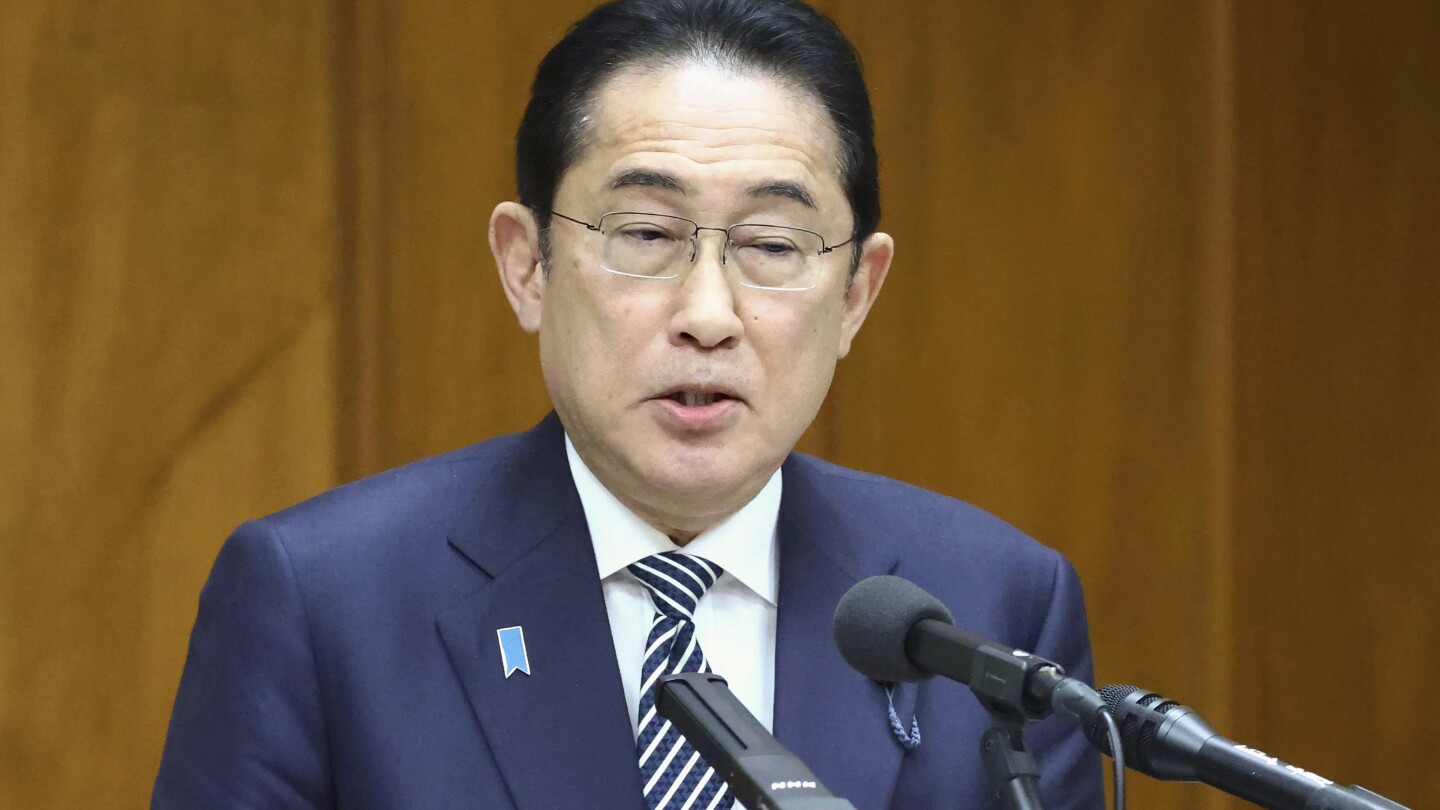TOKYO (AP) — Japan’s beleaguered prime minister was set to stand before a political ethics committee Thursday at Parliament in a bid to showcase his leadership.
Fumio Kishida has fought against plummeting support ratings since his governing party’s corruption scandal rocked the government. The scandal, considered the biggest in decades, centers on political funds raised through party event tickets bought by individuals, companies and organizations. It led to 10 people — lawmakers and their aides — being indicted in January.
While Kishida himself is not the focus of the scandal and was not even invited to the hearing, the surprise announcement of his personal appearance broke a deadlock between the opposition lawmakers and his governing party Wednesday when the five implicated attendants refused to go public, holding up a hearing and further tarnishing the party image.
The ruling Liberal Democratic Party’s resistance to have a fully open session fueled public criticism that Kishida’s party is taking the corruption lightly and trying to hide something.
Kishida’s action could help ease criticisms that he was too slow and lax in addressing the public’s distrust and taking anti-corruption measures.
“As head of the LDP, I will appear and fulfill my responsibility to explain in front of the media,” Kishida told reporters Wednesday. He said the deadlock on the hearing was “extremely disappointing. … I had a strong sense of crisis, that it would worsen the public’s distrust in politics.”
Kishida doesn’t have to call a parliamentary election until 2025, but his party has set a leadership vote for September.
The ethics committee is tasked with determining whether a lawmaker violated political ethics standards and should be held responsible, but critics say it’s largely a show and any serious investigative role is not expected.
Its hearings can be held in a closed meeting, but all but nine of its previous hearings were held publicly.
More than 80 LDP lawmakers, most of them belonging to a faction previously led by assassinated former Prime Minister Shinzo Abe, acknowledged not reporting funds in possible violation of the Political Funds Control Law. The money was alleged to have gone into unmonitored slush funds in the systematic long-term practice.
Kishida removed a number of ministers from his Cabinet and others from party executive posts, while some stepped down in the sandal, though support ratings for his government dwindled to around 20%.
The prime minister has announced the dissolving of his faction following the scandal, and has established an internal task force to make reforms. But half of its members are linked to the scandal, raising questions about how much it can achieve.
The LDP has governed postwar Japan almost without interruption and has repeatedly had corruption scandals followed by promises for cleaner politics.
Kishida and a former Internal Affairs Minister Ryota Takeda, who belongs to another powerful faction, were to appear at the hearing Thursday. Four Abe-faction members, including former Chief Cabinet Secretary Hirokazu Matsuno and former Trade Minister Yasutoshi Nishimura, were set to show up Friday.

